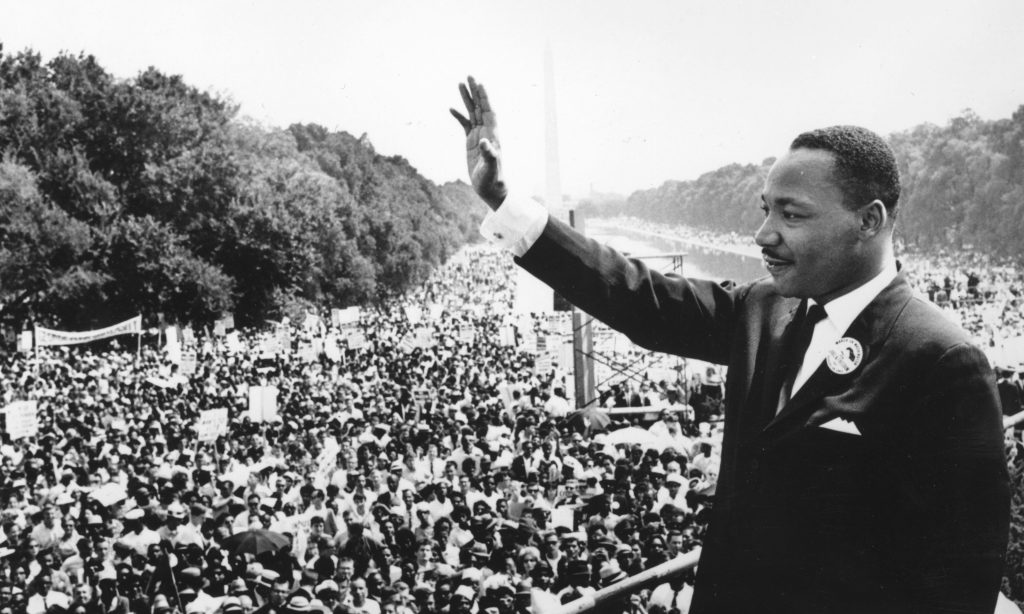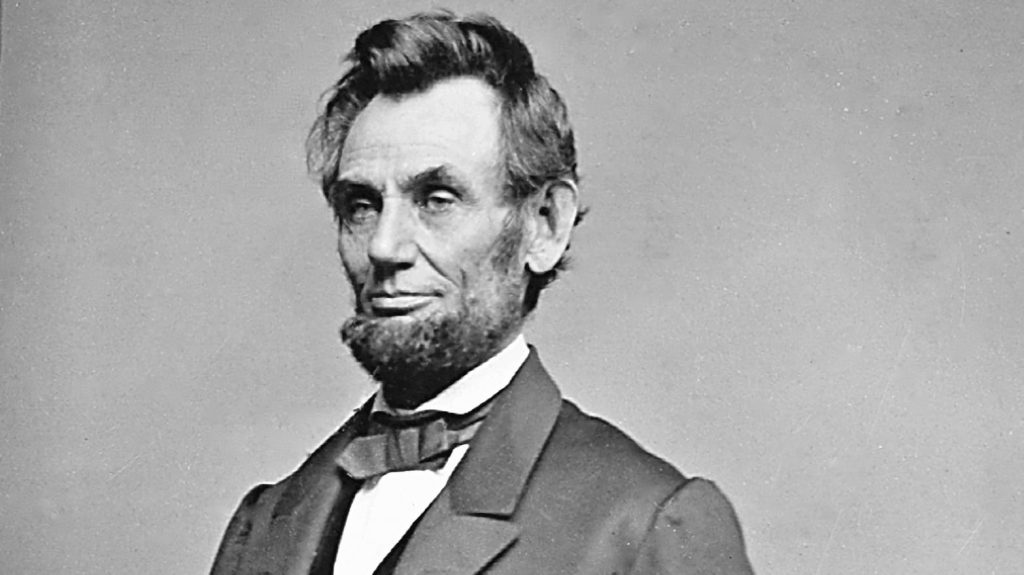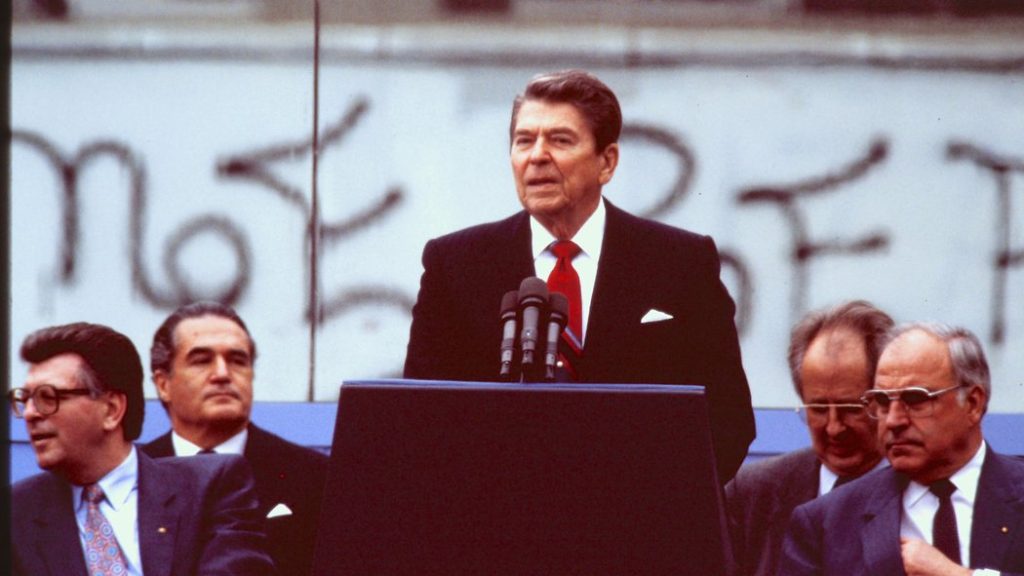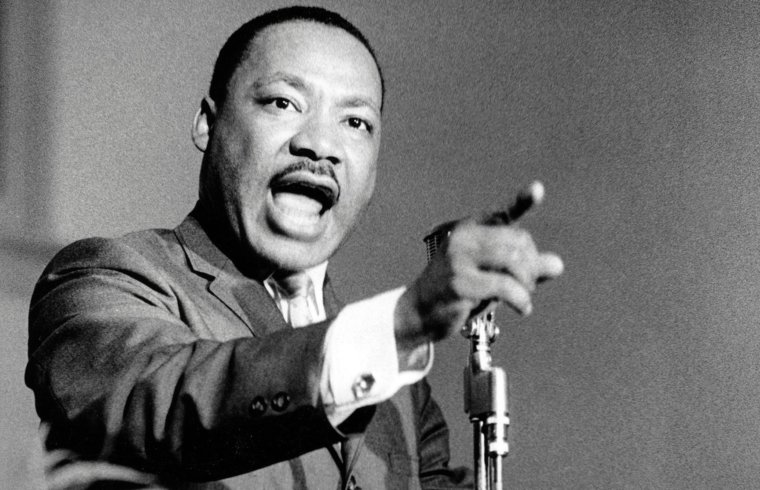Speeches have the power to inspire, motivate, and change the world. Over the years, there have been countless speeches that have left a lasting impact on people’s lives.
Today WisdomSpoon will discuss the top 3 important speeches in the history of United States that will be remembered forever.
“I Have a Dream” by Martin Luther King Jr.
“I Have a Dream” is a speech that was delivered by Martin Luther King Jr. on August 28, 1963, during the March on Washington for Jobs and Freedom. It is one of the most famous speeches in American history, and it has become a symbol of the Civil Rights Movement and the fight for racial equality.
=Black American civil rights leader Martin Luther King (1929 – 1968) addresses crowds during the March On Washington at the Lincoln Memorial, Washington DC, where he gave his ‘I Have A Dream’ speech.
The speech was delivered in front of the Lincoln Memorial in Washington D.C. and it was attended by an estimated 250,000 people, making it one of the largest political rallies in U.S. history. The speech was delivered during a time of great social and political upheaval in America, and it was intended to rally support for the Civil Rights Act, which would end segregation and discrimination against African Americans.
The message of the speech was simple but powerful: that all people, regardless of their race, should be treated equally under the law. King envisioned a world in which people would not be judged by the color of their skin, but by the content of their character. He called for an end to racial segregation and discrimination, and he urged Americans to work together to create a society that was truly free and just.
The speech is often remembered for its famous “I Have a Dream” refrain, which King repeated several times throughout the speech. In this part of the speech, King spoke about his vision for a world in which all people were equal, and he called on Americans to work towards this goal with determination and dedication. He said:
“I have a dream that one day this nation will rise up and live out the true meaning of its creed: ‘We hold these truths to be self-evident, that all men are created equal.'”
King’s speech was a powerful and moving call to action, and it helped to galvanize support for the Civil Rights Movement. It also inspired millions of people around the world to fight for equality and justice.
One of the most important aspects of the speech is its use of powerful imagery and metaphor. King used vivid language and powerful imagery to evoke a sense of hope and possibility in his listeners. For example, he spoke about a world in which “the sons of former slaves and the sons of former slave owners will be able to sit down together at the table of brotherhood.” This image of unity and reconciliation was a powerful message at a time when racial tensions were high.
Another important aspect of the speech is its emphasis on nonviolence and peaceful protest. King believed that change could be achieved through nonviolent means, and he urged his followers to pursue their goals through peaceful protest and civil disobedience. He said:
“We must forever conduct our struggle on the high plane of dignity and discipline. We must not allow our creative protest to degenerate into physical violence.”
This message of nonviolence and peaceful protest was a key part of the Civil Rights Movement, and it remains an important part of social justice movements around the world today.
“I Have a Dream” is one of the most important speeches in American history, and it has become a symbol of hope, justice, and equality. Martin Luther King Jr. used powerful language to inspire his listeners and to call on Americans to work towards a better future. His message of nonviolence and peaceful protest remains a powerful reminder of the power of civil disobedience and the importance of fighting for justice and equality.
“The Gettysburg Address” by Abraham Lincoln

In the speech, Lincoln spoke about the importance of the Union, which he described as “a new nation, conceived in Liberty, and dedicated to the proposition that all men are created equal.” He also spoke about the sacrifices made by the soldiers who had died in the Civil War, saying that “it is for us the living, rather, to be dedicated here to the unfinished work which they who fought here have thus far so nobly advanced.”
Lincoln’s use of language in the speech was particularly powerful. He used simple, yet eloquent, language to convey his message, and he employed a number of rhetorical devices, such as parallelism and repetition, to make his message even more memorable. For example, he repeated the phrase “we cannot dedicate, we cannot consecrate, we cannot hallow this ground” to emphasize the solemnity of the occasion and the importance of remembering the sacrifice of the soldiers.
The speech also had important political implications. At the time it was delivered, the Civil War was still raging, and the outcome was uncertain. Lincoln used the speech to rally support for the Union cause and to remind Americans of the importance of preserving the Union and the values that it represented.
The Gettysburg Address has become one of the most famous speeches ever delivered by an American president. It is remembered for its powerful message about the importance of preserving the Union and honoring the sacrifice of the soldiers who died in the Civil War, as well as for its poetic and inspirational language. The speech continues to be studied and admired today for its enduring message of hope, unity, and perseverance in the face of adversity.
“Tear Down This Wall” by Ronald Reagan
The “Tear Down This Wall” speech was delivered by President Ronald Reagan on June 12, 1987, at the Brandenburg Gate in West Berlin. The speech was given at a time when the Cold War was still ongoing, and tensions between the United States and the Soviet Union were high.
The Berlin Wall, which had been erected in 1961 by the East German government, was a physical and ideological symbol of the divide between the communist East and the democratic West. Reagan’s speech was intended to challenge the Soviet Union and to encourage the people of East Germany to seek greater freedom and democracy.

The speech was divided into several sections, each of which emphasized different aspects of the Cold War and the importance of freedom and democracy. In the first section, Reagan spoke about the role of the United States in the Cold War, and he emphasized the importance of standing up for democratic values and opposing totalitarianism.
In the second section, Reagan spoke directly to Soviet leader Mikhail Gorbachev, calling on him to tear down the Berlin Wall and to allow greater freedom and democracy in the Soviet Union and its satellite states. This section of the speech is perhaps the most famous, and it contains the iconic line “Mr. Gorbachev, tear down this wall!”
Reagan went on to argue that the Berlin Wall was not just a physical barrier, but also a symbol of the oppression that existed in the communist countries of Eastern Europe. He spoke about the importance of freedom of speech, freedom of the press, and the rule of law, and he argued that these values were essential for a free and prosperous society.
The speech was met with mixed reactions at the time, with some critics arguing that it was too confrontational and unrealistic. However, in retrospect, the speech is seen as a landmark moment in the Cold War, and it is credited with helping to hasten the eventual collapse of the Soviet Union and the fall of the Berlin Wall in 1989.
The speech is remembered for its iconic line and its emphasis on the importance of standing up for democratic values in the face of totalitarianism. Today, the speech is seen as a turning point in the Cold War and a reminder of the power of words to inspire change and shape history.

